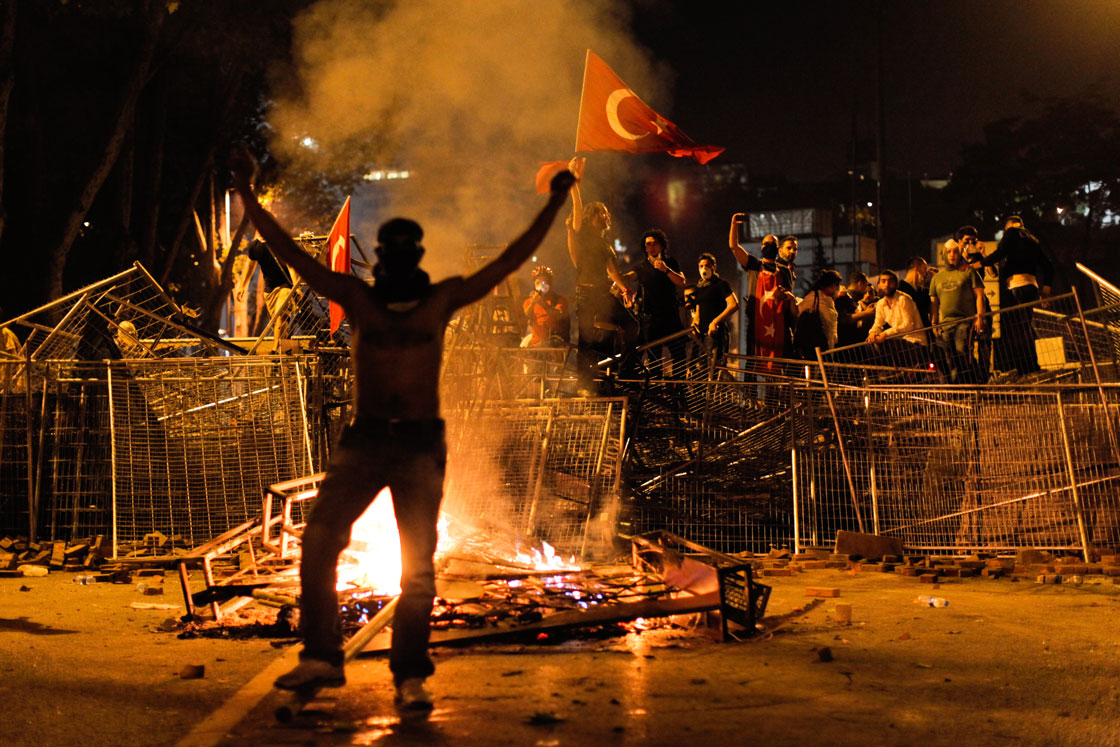TORONTO – As violence continues for a fourth straight day in Istanbul, Turkey, supporters are turning to social media sites to spread the word about the anti-government movement.

Due to what they call a lack of adequate news coverage by local media outlets, citizens have turned to crowd sourcing search engine site Quora to spread the word about the protests and gain perspective from locals.
“People of Quora must learn and act about what is happening in Taksim, Istanbul. World media is reluctant to stream the events (31 May 2013),” read the Quora page asking, “What is happening at Gezi Park in Taksim, Istanbul?”
The Quora page, which asks users to share context and news in order to gain more media coverage, compares the lack of media attention to that of the protests in Tahrir Square in Cairo, Egypt in 2011.
Gallery: Turkish protests enter 4th day
Turkey has seen violent demonstrations since Friday, when police launched a dawn raid against a peaceful sit-in protesting plans to cut down trees in Istanbul’s main Taksim Square.
Since then, the demonstrations by mostly secular-minded Turks have spiraled into Turkey’s biggest anti-government disturbances in years, challenging Prime Minister Recep Tayyip Erdogan’s power.
The Quora page lists detailed responses that include updates from social media users who appear to be in the middle of the protests, as well as video diaries from Turkish citizens trying to explain why the people are fighting back.
Residents included their take of the events in Gezi Park in an attempt to clear up conflicting reports about the protests.
“This protest, while starting out as a small peaceful one about a nice park has turned into a symbol of defiance against the current government who seemed not to be expecting it,” read one resident’s account.
“Oppressive right-winged government, blinded by their successes on some issues and support from their base supporters, failed to see the pressure rising in the other camp as well as the missteps they took, now they have a nationwide riot on their hands. Quite an event for Turkey, this isn’t even slightly in the norm.”
The Turkish protests are a unique example of how Quora can be used.
- High benzene levels detected near Ontario First Nation for weeks, residents report sickness
- Enter at your own risk: New home security camera aims paintballs at intruders
- Beijing orders Apple to pull WhatsApp, Threads from its China app store
- Boston Dynamics unveils ‘creepy’ new fully electric humanoid robot
Quora is designed to be a collection of questions and answers crowdsourced by its users, or “A continually improving collection of questions and answers created, edited, and organized by everyone who uses it,” as the website describes.
“The most important thing is to have each question page become the best possible resource for someone who wants to know about the question,” reads the site.
Users also vote on the best answers in order to boost the most helpful or specific answer.
The site follows in the footsteps of sites like Wikipedia, which gained international success for its dictionary-like collection of people, places and things. But, unlike Wikipedia, Quora doesn’t take kindly to anonymous additions and recommends that users sign up with their social media sites to participate.
Quora, founded in 2009 by former Facebook employees Adam D’Angelo and Charlie Cheever, launched in June 2010 and has even resulted in an EBook called Best of Quora, which offers over 100 expert answers to popular questions asked on the site.
The site gained praise from the Seattle Times in January 2011, during the protests in Tahrir Square, for its unique ability to curate information and help to understand the core issues surrounding the protests.
“The protests in Egypt — and the related questions about the Internet outage and the country’s politics — provide a case to use Quora. It’s a way to block out the noise, better understand the story and find coverage,” read the report by the Seattle Times.
It noted that because the site is organized by topics, users can zone in on specific terms, for example, ‘Egypt, or just ‘Protests.’
The site has also been praised for its use of social network integration, as it helps users find good sources on Twitter to get real-time updates.




Comments